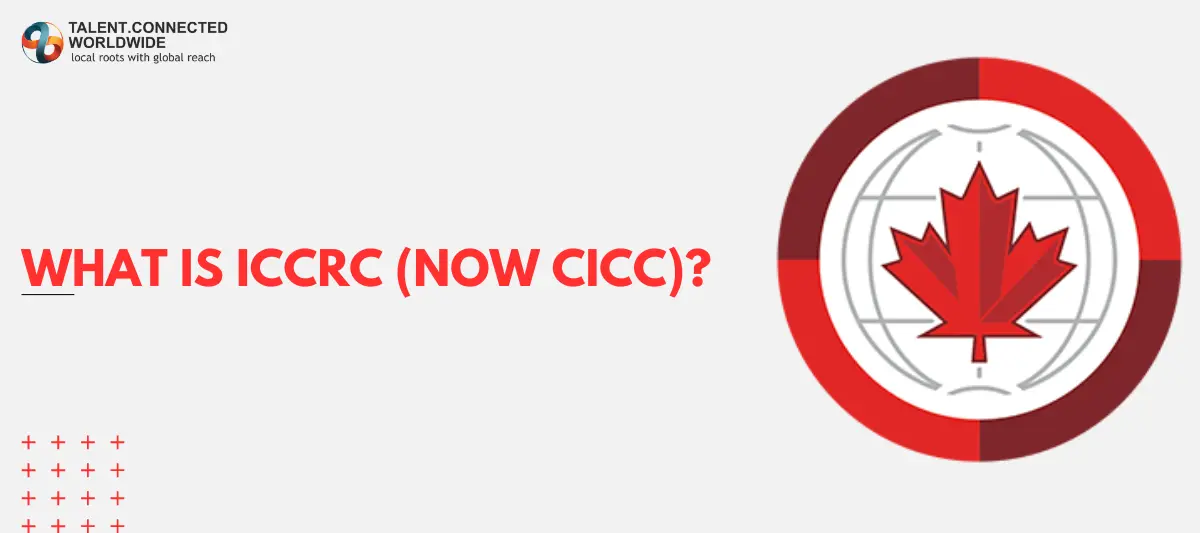
The College of Immigration and Citizenship Consultants (CICC) licenses RCICs and RISIAs. Any Canadian immigration consultant not authorized by the CICC, is not permitted to advise people legally regarding immigration. If someone is found doing so, they will be held legally punishable.
In this article, we will discuss what is CICC [previously known as ICCRC], RCIC & CAPIC are. We will include their concise history and help the readers understand the importance of these regulatory bodies.
The College of Immigration and Citizenship Consultants- CICC (est. 2021)
The CICC was established because of an act known as the College of Immigration and Citizenship Consultants Act (Canada) or the College Act. This act was passed in 2019. It was launched in 2021 and replaced the ICCRC or Immigration Consultants of Canada Regulatory Council.
The College of Immigration and Citizenship Consultants was conceptualized through the passing of the C-97 bill. The bill was passed in June 2019 and the CICC was officially opened on November 23rd, 2021.
The regulatory council was established with the aim of providing regularized and legal immigration services. The aim of CICC is to protect the public by identifying and penalizing unauthorized immigration consultants and practitioners.
To further fortify and improve legal immigration and curtail fraud by unauthorized immigration consultants, the ICCRC was replaced by the CICC. Moreover, the college is conferred with powers and resources for investigation, enforcement, and supervision.
The CICC regulates:
- RCICs – Regulated Canadian Immigration Consultants, and
- RISIAs – Regulated International Student Immigration Advisors.
It is mandatory to possess a license from the CICC to practice as a regulated immigration consultant without being a designated lawyer.
The Canadian Association of Professional Immigration Consultants- CAPIC (est. 2004)
The Canadian Association of Professional Immigration Consultants or CAPIC was founded in 2004 through the partnership of AICC (Association of Immigration Counsel of Canada), and the Organization of Professional Immigration Consultants (OPIC).
At present, CAPIC is the largest and the only non-profit organization for immigration consultants in Canada.
Who is a CICC/ICCRC certified Canada Immigration consultant?
To become a CICC/ICCRC licensed immigration practitioner, you must:
- be at least 18 years of age
- Meet language requirements
- Follow the licensing process
- Complete a graduate diploma from Queen’s University in Immigration and Citizenship Law. It is the only English language program that facilitates becoming a licensed immigration consultant.
- Pass the Entry-to-Practice Examination conducted by the College of Immigration and Citizenship Consultants (CICC).
How to verify an ICCRC/CICC immigration consultant?
To ensure transparency, the CICC/ICCRC has an accessible list of all the licensed RCICs that are legal and active. One can visit their “Find an Immigration Consultant” portal and verify if their immigration consultant is legal or not.
Furthermore, one can also confirm if the RCIC (Regulated Canadian Immigration Consultant) is:
- Active, in good standing, and competent to serve the clients
- Active but with restricted practice due to some disciplinary reasons.
- Suspended due to disciplinary causes or failure to maintain their CICC/RCCIC license.
Only consultants with an ‘active’ status besides their name can provide immigration services to their clients. You can easily identify that we are authentic if you search for Rachal Sidhu. Her RCIC number is R16157. You will also find Devdatt Dhariyal listed as her agent on the CICC portal. Both Rachal Sidhu and Devdatt Dhariyal are Talent Connected Worldwide’s co-founders.
CAPIC, ICCRC, and CICC were established with the intention to safeguard vulnerable immigrants from illegal immigration consultants. Being in a regulated profession is a privilege and with privilege comes grave responsibility.
Hence, legal immigration and citizenship consultants need to satisfy and fulfill ethical and legal demands. Being a member of CAPIC and ICCRC/CICC certified means aspiring immigrants are provided with transparency and premium services.


